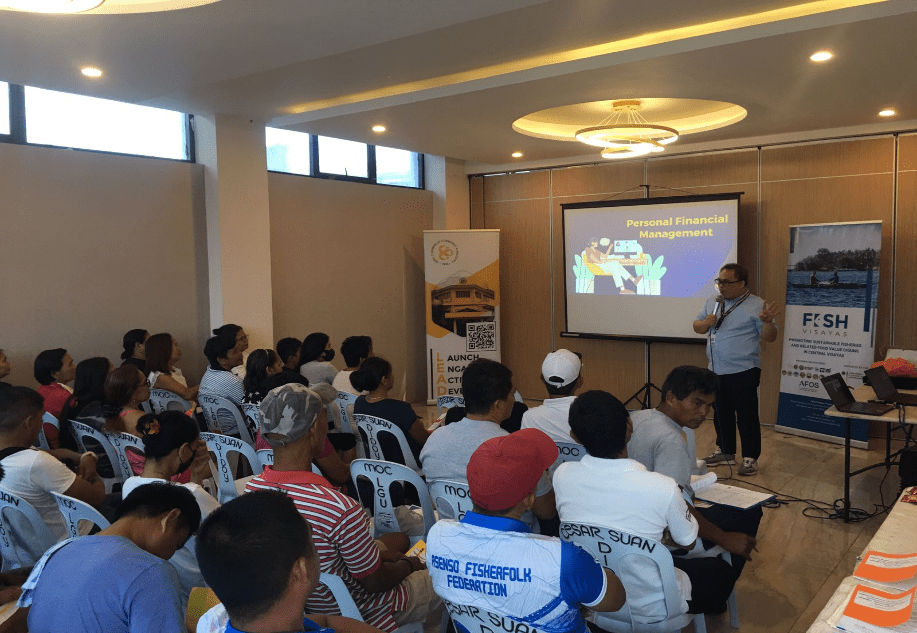MINERVA BC NEWMAN
CEBU CITY – Have you ever received emails telling you that you’ve won a large amount of money in a raffle that you don’t even remember joining? Have you received ‘limited offers’ to get the latest smartphone for free if you just provide your personal information?
More than 7,000 participants composed of students and teachers in the Visayas and Mindanao area logged on into the virtual hall for the two legs of the learning series of webinars on “#CyberSmart Cybersecurity Beyond Digital” virtual caravans mounted by PLDT wireless unit Smart Communications, Inc. (Smart) for September in celebration of Cybersecurity Awareness Month.

They checked out interactive booths and played interactive games while learning about cyber threats and safety. They all streamed into the virtual auditorium to listen to six Ted-style talks on how to protect one’s digital presence.
Other topics included internet safety, keeping lurkers out of video meetings, and best practices in securing gadgets and devices, spotting fake news, media etiquette and more to boost online safety in times of COVID-19 as more Filipinos use the internet for blended learning or for work.
Cyber Security Operations Group at Smart Junior Manager Yvette Tuazon said that the infamous “budol-budol” modus has migrated to the digital space.
“Most of these attacks are done via social engineering. This is the manipulation of people into divulging confidential or sensitive information and are mostly done over emails, but some are being carried out over voice calls,” Tuazon explained.
Tuazon added that to avoid becoming a victim, remember the acronym FALSE;
File Attachments. Be wary of file attachments. If they seem unrelated to the topic of the email, better not open them.
Attention Grabbing Offers. Tuazon said hackers would normally entice their potential victims with tempting offers like free phones or large sums of money, urging them to reply with their personal details so their ‘gifts’ could be processed.
Links. These messages might also come with a link. When users click it, they’re led to a website where they’re asked to fill out forms with their personal information.
Sender is unknown. Remember what our parents taught us about not talking to strangers? This also holds true online. If you don’t know the sender, never open the message.
Element of time. Often, the malicious person will tell you that the offer is only good for a short period that’s why you need to take advantage of it.
According to Tuazon that hackers target individual users as more people log on into the internet because of quarantine measures. They harvest personal information which will serve as a starting point to penetrate organizations.

Max Limpag, Co-founder at InnoPub Media shared red flags to help participants identify legitimate news from stories meant to disinform the public. He said the common mistakes are misspelled words and grammatical errors.
JB Deveza, Safety Officer at the National Union of Journalists in the Philippines on the hand urged participants to read past the headlines and pore over the entire story. He also encouraged students and teachers to check the source of the article if it is a legitimate news organization.
Amy Cabusao, Editor-in-Chief at Mindanao Times discussed social media etiquette. She reminded participants that every post, every tweet represents them as a person and the organization they’re a part of.
Edwina Astrid Cuezon, Head of Communication and Partnerships at Malayan Colleges Mindanao said that this is a great initiative from Smart Communications to train the trainors and extend help to the students who rely heavily on the use of the internet to get their schoolwork done and a significant part of their day-to-day lives.
Jemarl Christian Barinque, student at University of Cebu – Maritime Education and Training Center commented that not all students are aware of the threats they face online. With the help of #CyberSmart, he learned how to keep his data and personal information safe.
Meantime the Department Head/VP Regional Customer Development for VisMin at Smart, Hoyle Raul Disuanco urged participants to embrace online safety as they spend more time on the internet because of the public health crisis.

“As Smart continues its campaign to increase cybersecurity awareness in the country, we hope we’re able to help you learn more about prevailing threats, equip you with the right knowledge to protect yourself and inspire you, the youth, to work together and create a safer online space for all users,” Disuanco added.












